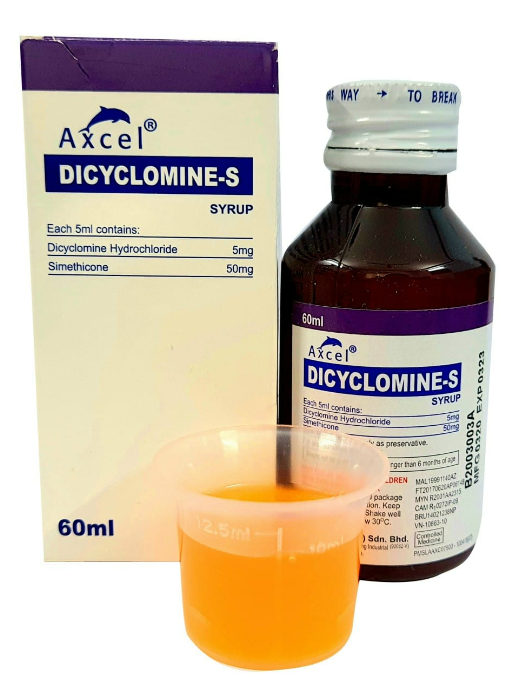What Is Dicyclomine Used For? Symptom Relief

Dicyclomine is a medication that belongs to the class of anticholinergics, which are used to treat various gastrointestinal disorders. It is primarily used to provide relief from symptoms associated with irritable bowel syndrome (IBS), functional bowel disorder, and other conditions that affect the digestive system. The drug works by relaxing the muscles in the stomach and intestines, thereby reducing spasms, cramps, and other uncomfortable symptoms.
One of the main uses of dicyclomine is to alleviate the symptoms of IBS, which can include abdominal pain, bloating, gas, diarrhea, and constipation. By reducing muscle contractions in the digestive tract, dicyclomine can help to relieve these symptoms and improve the overall quality of life for individuals with IBS. It is often prescribed for patients who experience persistent and severe symptoms that interfere with their daily activities.
In addition to its use in treating IBS, dicyclomine may also be used to treat other conditions, such as:
- Functional bowel disorder: This is a condition characterized by recurring abdominal pain, bloating, and changes in bowel habits, without any visible signs of infection or inflammation.
- Spastic colon: This is a condition where the muscles in the colon contract abnormally, leading to symptoms such as abdominal pain, bloating, and changes in bowel habits.
- Gastrointestinal spasms: Dicyclomine can be used to relieve spasms and cramps in the digestive tract, which can be caused by a variety of factors, including food intolerance, stress, and certain medical conditions.
It is essential to note that dicyclomine is not a cure for these conditions, but rather a symptomatic treatment. It can help to manage the symptoms and improve the quality of life for individuals with these conditions. However, it is crucial to use the medication under the guidance of a healthcare professional, as it can have side effects and interact with other medications.
How Dicyclomine Works
Dicyclomine works by blocking the action of acetylcholine, a neurotransmitter that stimulates muscle contractions in the digestive tract. By reducing the activity of acetylcholine, dicyclomine can help to relax the muscles in the stomach and intestines, thereby reducing spasms, cramps, and other uncomfortable symptoms.
The medication can be administered orally, usually in the form of tablets or capsules, and is typically taken 3-4 times a day. The dosage may vary depending on the individual’s condition, age, and response to the medication. It is essential to take the medication exactly as prescribed and not to exceed the recommended dosage, as this can increase the risk of side effects.
Potential Side Effects and Interactions
While dicyclomine can be an effective treatment for gastrointestinal disorders, it can also cause side effects, especially when used in high doses or for extended periods. Some common side effects of dicyclomine include:
- Dry mouth
- Dizziness
- Blurred vision
- Constipation
- Urinary retention
In rare cases, dicyclomine can cause more serious side effects, such as:
- Allergic reactions
- Confusion
- Hallucinations
- Seizures
It is essential to monitor for any signs of side effects and seek medical attention immediately if any of these symptoms occur.
Dicyclomine can also interact with other medications, including:
- Antihistamines
- Anti-anxiety medications
- Muscle relaxants
- Opioid pain medications
It is crucial to inform your healthcare provider about any medications you are taking, including over-the-counter medications and supplements, to minimize the risk of interactions.
Conclusion
In conclusion, dicyclomine is a medication that can provide relief from symptoms associated with irritable bowel syndrome, functional bowel disorder, and other gastrointestinal conditions. While it can be an effective treatment, it is essential to use the medication under the guidance of a healthcare professional and to be aware of the potential side effects and interactions. By following the prescribed dosage and administration instructions carefully and monitoring for any signs of side effects, individuals with gastrointestinal disorders can experience significant symptom relief and improved quality of life.
What is the primary use of dicyclomine?
+Dicyclomine is primarily used to provide relief from symptoms associated with irritable bowel syndrome (IBS), functional bowel disorder, and other conditions that affect the digestive system.
How does dicyclomine work?
+Dicyclomine works by blocking the action of acetylcholine, a neurotransmitter that stimulates muscle contractions in the digestive tract, thereby reducing spasms, cramps, and other uncomfortable symptoms.
What are the potential side effects of dicyclomine?
+Common side effects of dicyclomine include dry mouth, dizziness, blurred vision, constipation, and urinary retention. In rare cases, it can cause more serious side effects, such as allergic reactions, confusion, hallucinations, and seizures.


